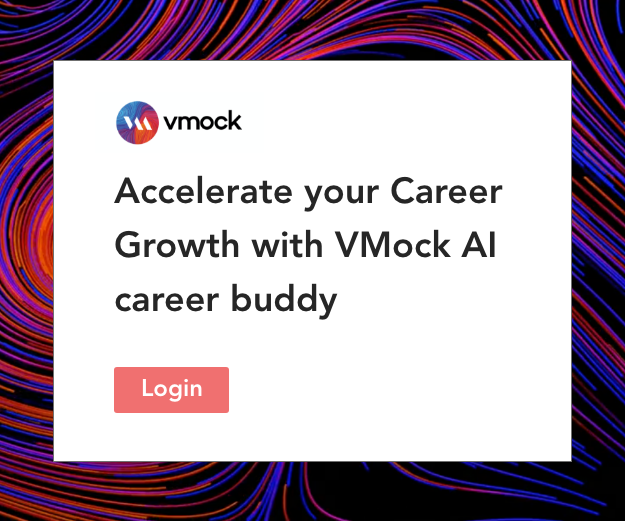The wise Greek philosopher Heraclitus wrote, “Change is the only constant.”
And how right he was, because if he was confronted with any of the prevalent job descriptions of today, he would truly be baffled. And he would not be alone.
According to the World Economic Forum (WEF), nearly 70% of children starting primary school in 2016 will leave school to hold jobs that do not currently exist.
The fourth industrial revolution is underway, developments in fields like robotics, artificial intelligence (AI), nanotechnology and biotechnology are building and amplifying one another to result in an exponential rate of change, where the “speed of current breakthroughs has no historical precedent.”
The WEF’s Future of Jobs report also found that close to 50% of the employment activities of today could be obsolete due to automation, and as many as 7.1 million jobs may be made redundant. In these past few years, disruption has demonstrated that any job that can be replaced by technology- soon will be. Globalization of innovation, development of inter-connected technologies along with socio-economic and technological disruption is transforming the global job market.
However, technological intervention does facilitate unprecedented levels of efficiency and success. As former career coach at Yale School of Management, Nicole Merrill said about VMock, “VMock took over part of my job. The volume of resume reviews dropped dramatically and it improved the quality of resumes that I eventually reviewed. VMock made career coach life easier. VMock freed up time for me to focus on other aspects of the student experience like mock interviews and experiential learning.”
In a world experiencing such exponential change, it may well be impossible to future proof your job, but you can definitely future proof your career. Here are some strategies that can help keep opportunities open, and carve career goals that stand the test of time.
Choose a Futuristic Career Path
Keeping an eye on the big picture is essential to career development and success. Preparing to enter the job fields likely to experience the highest growth is an effective way to future-proof your career. The fields experiencing high growth include high tech, big data and analytics, cyber security and forensics, and ‘green collar’ jobs in wind farming and solar thermal engineering.
Most of these in-demand sectors are also facing severe skill shortages. For example, in the UK, there are an estimated 750,000 job openings in IT in 2017, and stacked against this huge number are just 50,000 computer science students that graduated in 2014. So if you cannot beat them, join them. There are jobs aplenty in supporting, directing, supervising, repairing and creating technologies. Your job is unlikely to be threatened by change if you are responsible for overseeing it.
However, it is important to remember that no one can accurately predict the future- especially one so deeply rooted in disruption. It is important to constantly scan the environment and keep abreast of what may befall an industry; frameworks such as the PEST analysis and Porter’s Five Forces for assessing entire market sectors can help identify opportunities and vulnerabilities. Making informed decisions is important for choosing a career with long-term sustainability. The key lies not in predicting the future, but in being attuned to early indicators of change.
Learn to be a Digital Native
The advent of a multitude of technologies has pervaded every space; interactions and transactions are highly influenced by online tools and on-demand services. As companies become global, leaner and more efficient, every single process is impacted by the internet in some way.
The mastery of Microsoft Office is hardly a value-addition in the new world order where avatars and holographs are likely to be commonplace.
Being up to date and digitally savvy with the virtual world is no longer about differentiation, it is about being proficient in essentials in a fast-moving world.
Fortunately, there are many free online courses that can help develop in-demand tech savvy. If your field of work is highly technical, not only aim to invest in a postgraduate specialization, but focus on staying current even if the company you are working for, does not.
And yes, you should know how to work with Adobe Photoshop, Snapchat, Instagram, Google Analytics and Hootsuite- for personal branding, even if these are not directly related to your current job. When something needs Python to run a script, they are not asking you to get a pet snake.
Consider Entrepreneurship
The traditional rules of the workplace no longer apply; the 9-5 workday, physical workspace and previously frowned upon work-from-home are giving way to more efficient and unconventional systems. As companies evolve towards agile and flexible operations, change has brought about the rise of the ‘gig economy’. The number of freelancers and independent contractors is growing, and will soon be higher than ever before.
The transformation has been brought about by internet-based services such as Uber, Deliveroo and Airbnb, empowering professionals to work independently by reducing barriers of distribution, cost, and communication.
According to the Bureau of Labor Statistics, there are currently over 15 million self-employed workers in the US, which is nearly 1 in every 3 workers. Self-employed people are growing, as technology propels us into the age of the micro-entrepreneur.
Being able and willing to be a freelancer, independent contractor or entrepreneur is an excellent way to future proof your career, as it reduces dependence on a single job, provides greater control over circumstances and improves work-life balance.
Focus on Being Human
Technology is key to automating systems made up for repetitive tasks, and is excellent for doing tasks at a scale not possible for humans, but it is quite bad at being human. Technology addresses broad, mass needs and its effectiveness in adapting to complex, uncertain situations and engaging with people is still suspect. Therefore, an important way to future proof your career against the robot revolution is to develop soft job skills that are almost (at least currently) impossible to mechanize and automate.
- Empathy and Compassion: Jobs that involve constant human interaction are unlikely to be automated or even outsourced to another country. Professionals such as fitness trainers, therapists and those in childcare should be safe.
- Creativity: A computer can create music, poetry, and creative visuals, but these are based on provided guidelines, and are hardly original or truly innovative. Creative expression is still the domain of human beings, and professions based on creativity such as graphic design, writing, music and painting will be appreciated and irreplaceable for a long time yet.
- Specificity: As automation addresses broad needs, it is not built for niche and specific knowledge. For example, diagnosticians may worry about becoming obsolete soon, but physicians with wide and varied clinical experience are unlikely to be under threat from artificial intelligence.
While soft skills may superficially seem less important than hard skills, the World Economic Forum has also predicted that (in the future) “more than a third of the desired core skill set of most occupations will be comprised of skills that are not yet considered crucial to the job today.”
In essence, developing interpersonal skills, creativity and problem-solving skills provides important tools required resilience and stability against a constantly changing environment.
Start with building collaborations and networks, and being responsive and open-minded to different opportunities. Not only will a network provide referrals for a new job, but will also broaden your horizons in terms of different applications and positions available for a given skill set, with the backdrop of a changing landscape.
Strive to Upskill Constantly
A specialized Master’s degree can boost your career significantly, provide job security, access to an array of roles and increase earning potential. A 2014 Harvard Business Review study of executive roles found that even in changing times, the single biggest differentiator remains a higher education level and a quality degree; more than 1/3rd of top executives in Fortune 100 companies had an MBA from an Ivy League School.
Even beyond formal education, there has to be a commitment to lifelong learning.
If you are at an early stage in your career path, you can consider working with companies known for investing in professional development of employees. For example, companies such as General Electric and Mars enroll employees in programs aimed at providing a sturdy foundation of transferable, cross-functional job skills beyond your current role.
However, no career and industry is safe from the ravages of time and change, and even the most seemingly future-proof skill sets will eventually become redundant. Build flexibility and resilience- no one can afford to wait for change to arrive, and the importance of proactive preparation cannot be emphasized enough.
With some forethought and careful planning, you can take control of your future today. An understanding of the future of the work is very important- as is always having a plan B.





